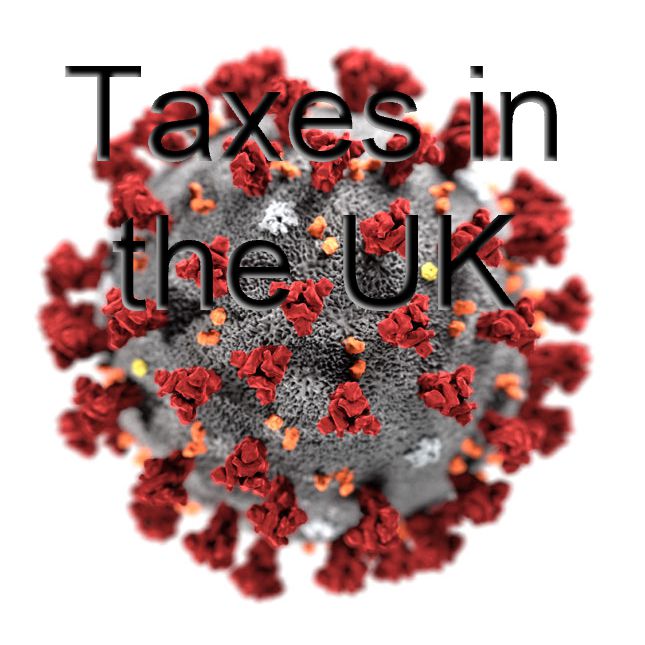The pandemic is having a major impact on the UK travel and tourism sector. This includes many Furnished Holiday Let (FHL) stores that have had to close for most of the 2020-21 holiday season. Even if strict cleaning requirements and distance regulations allow businesses to reopen, many still suffer from increased costs, longer travel times, and reduced capacities.
As a result, many properties get licensed in significantly fewer days than usual, and the FHL business may not meet all of the criteria for FHL approval in the 2021-22 tax year. In this article, we look at the tax implications and options available to property owners.
The Property Is Eligible for FHL If the Following Criteria Are Met
The accommodation must be commercially available as holiday accommodation for the general public for at least 210 days a year. The apartment must actually be rented out commercially as holiday accommodation for 105 days or more per year (excluding long-term usage periods, ie 31 days or more).
Longer-term stays of more than 155 days per year are not permitted. The above exams usually apply during the tax year. Unless it’s the first or last year of taxation. In this case, the criteria of the first 12-month permit or the last 12-month permit must be met.
What Will Be the Tax Implications If Your FHL Business Does Not Meet The 2021-22 Criteria?
The main difference with FHL compared to standard rent is that FHL is treated as a specific tax transaction. This means that FHL companies can take advantage of machine and system advantages for furniture, furnishings, and white goods on the company premises. The profit is also eligible for pension contribution purposes, and the financial cost and interest restrictions that apply to homeowners do not apply to FHL companies. This means that the owner can fully deduct the mortgage interest from tax. In addition, there is various capital gains tax (CGT) discounts that are also available for future property sales or gifts.
Income tax if the real estate business is excluded from the FHL, as previously claimed machine and system allowances can be withdrawn, mortgage rate reductions can be restricted and pension contribution tax reductions can be canceled. The burden on you can increase. “Income” is not enough. In addition, the sale of real estate can increase the CGT’s debt and cause certain remedies to be unavailable to the CGT.
What Are My Options?
If your lease time in a year does not exceed 105 days, you can choose a “grace period”, as long as the terms of the lease date are met, as long as all other terms are met, you are entitled to FHL. FHL is respected. take. Achieved this year.
To be able to make a choice, you need to prove that you want to rent a house this year. Closing by preventing the coronavirus should be optional, as HMRC policy allows cancellation due to unforeseen circumstances. In addition, the property must meet the lease conditions of the previous year. The election can last up to two years, which is useful if rents could not be quickly restored in 2020-2021 and 2021-2022 (if necessary). However, if you fail to qualify for the FHL for the second consecutive semester, you will lose the FHL qualification.
Another way to allow multiple FHLs is to make a media selection. Since lease terms apply to the average occupancy rate of all properties rented out as FHL, it makes sense that some (if not all) properties may be rented out. However, you can only average the assets of one FHL company. This means that FHL property in the UK and the European Economic Area are always treated separately for tax purposes and cannot be confused.
You can combine the grace period and average selection to ensure that the property continues to meet FHL conditions.
So make a Choice
Both of these decisions can be made on the UK property self-assessment page or from January 31 to one year after the end of the tax year, that is, before H. January 31, 2023, in the 2020-21 tax year. Can be made separately. ..
2021-2022 net Asset Loss
Due to lower sales and higher costs, many FHL companies may have suffered net tax losses during 2021-2022. This loss can only be carried forward and offset the future profits of the FHL business. It is impossible to offset it with any other income or gains from the UK real estate business.
If FHL does not meet the 2020-21 eligibility criteria, and there is neither a grace period nor an average option, the losses incurred in 2020-21 will be treated as losses of British assets rather than losses. FHL loss. Fortunately, these losses can be offset by FHL’s future benefits. When the business recovers, this will be a major tax cut.
What if I Want to sell my FHL Property?
If you plan to sell or dispose of the property, any product may qualify for the 10% tax rate (instead of the 18% / 28% tax rate for residential properties) if the disposal qualifies for BADR. In addition, FHL may also be eligible for other CGT exemptions, such as rollover exemptions, business asset grant exemptions, and merchant loan exemptions.
If you are considering selling your FHL property, be sure to check your tax situation. If the property does not meet the relevant standards for various deductions (e.g. for BADR the property must meet FHL eligibility for at least two years), this can result in a much higher tax bill than expected.
It should also be noted that the transfer of the FHL property and any taxes paid to HMRC must be reported within 30 days of completion.
Delay in x Digitization for Income Tax
Currently, taxpayers with taxable rent and/or independent business income must report it on their annual tax return, which must be submitted by October 31 (if filed on paper) or January 31 Submit by the date (if submitted electronically). Taxation year. The Digital Income Tax Self-Assessment (MTD ITSA) is the government’s plan to reform this process, introducing digital record keeping and more frequent annual reporting requirements at HMRC.
It is expected that MTD ITSA will be introduced to affected businesses and owners from April 6, 2023. However, the government recently announced the postponement of implementation. Individuals will now enter the new reporting system from April 6, 2024, while partnerships without corporate members will start from April 6, 2025.
Taxpayers affected by MTD ITSA will be required to use MTD-compatible software to maintain digital records of their rental and/or self-employment activities and submit quarterly reports on these activities to HMRC. Final company data, along with all other income and earnings currently included in the self-assessment tax return, must be reported digitally by January 31 after the end of the tax year.
Taxpayers with annual rent and self-employment income (before expenses) exceeding £ 10,000 will be affected, which may affect FHL’s moderate-income or accompanying FHL activities (e.g. from non-property. FHL, or exclusive trade).
BAT reporting requirements for partnerships are slightly different from those for individuals, as partnerships must report all income and earnings every quarter is not just business income. It has not been confirmed when a general partnership, limited partnership or limited liability company (LLP) with company members will join MTD ITSA. Trusts, deceased estates, non-resident corporations, registered pension plans, and digital-excluded taxpayers are currently exempt from MTD ITSA.




